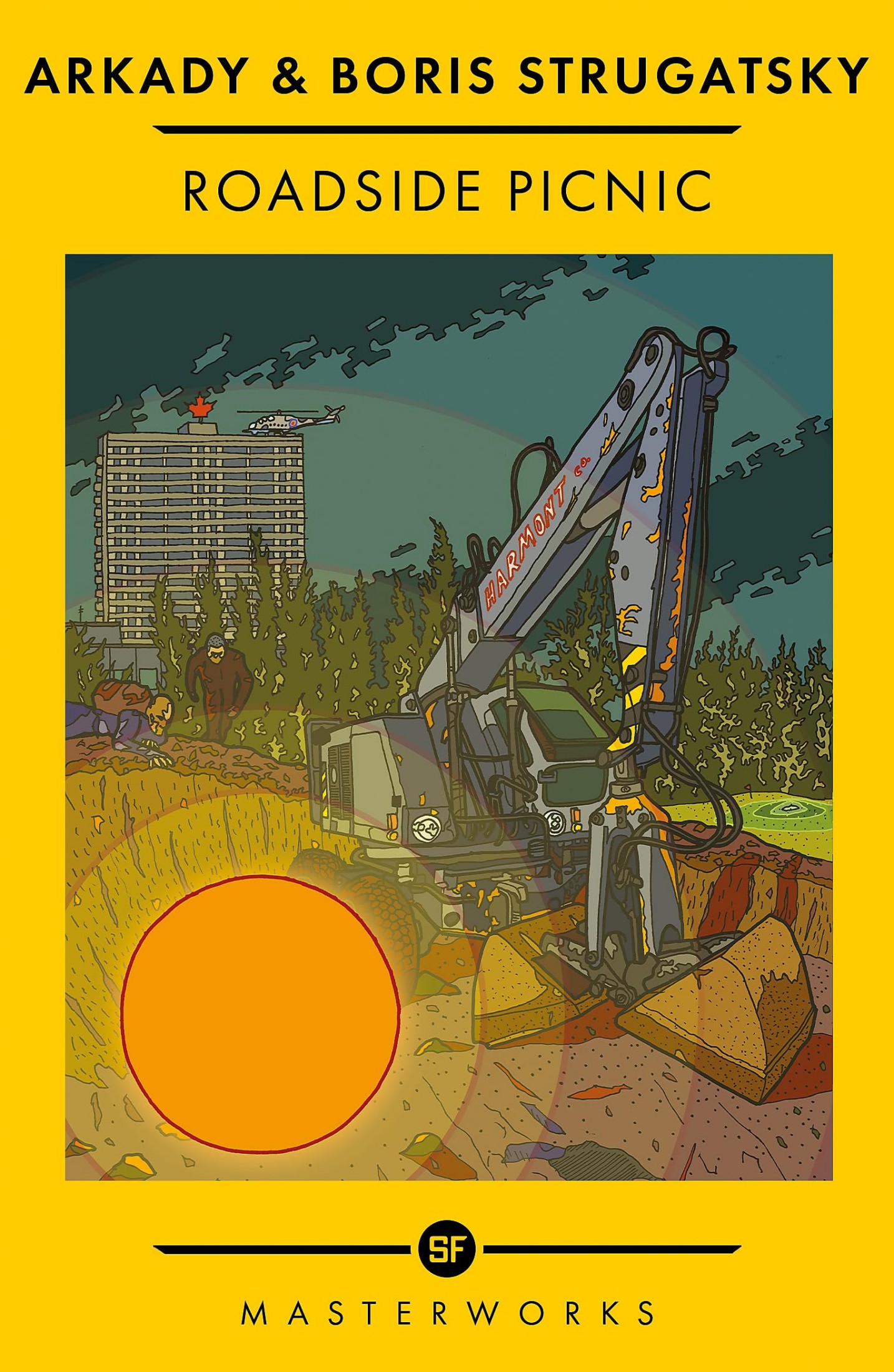Roadside Picnic

Review
Roadside Picnic, by brothers and , is a Soviet sci-fi novel. It’s essentially four short stories—each presented as a chapter—about the life of Redrick “Red” Schuhart, a “stalker” who illegally enters an alien-contaminated Zone to retrieve items for the black market.
Roadside Picnic is a first-contact story like The War of the Worlds and The Three-Body Problem. While both of those books treat aliens as hostile and bent on conquering humanity, this book takes a different approach: the aliens are completely indifferent to our existence. One of its main themes is that humanity is not special. In that way, Roadside Picnic is closer to Blindsight and Echopraxia, where we encounter intelligences—Rorschach, the Vampires, the Bicamerals—that are completely alien, not even conscious in the human sense, yet operating on a level far beyond our understanding.
Tied into this theme is our inability to understand; that some things are unknown and unknowable. and never give the reader any more information than the characters have, and they never show us the aliens. They don’t even hint at what the Visitors might be like, other than by showing us the incomprehensible items they left behind. Humans have no better chance of understanding an Empty or the Golden Sphere than an ant has of understanding a nuclear reactor. Red’s daughter, the Monkey, fits this theme too, becoming more and more alien as she grows older and losing the ability to understand her parents at all.
and make the Zone feel dangerous and oppressive without overdoing it. We only see the inside of the Zone twice: once at the very start, when Red takes Dr. Kirill Panov to collect a full Empty, and again at the end, when Red sacrifices Arthur to the grinder to make a wish at the Golden Sphere. But the Zone looms over the entire novel, always feeling like it’s about to erupt from the pages.
Roadside Picnic pays homage to ’s The War of the Worlds in more than just being a first-contact story. ’s Martians travel to Earth using a giant cannon. Dr. Pillman describes the Visitors’ arrival by saying, “all six Visit Zones are positioned on the surface of the planet like bullet holes made by a gun located somewhere between Earth and Deneb.”
Roadside Picnic reminded me of other works. The institute trying to contain and study the Zone’s artifacts is similar to the SCP Foundation from ’s There Is No Antimemetics Division. The rundown town with supernatural elements is like Revachol in Disco Elysium. Alien trash appearing on Earth and being studied or weaponized is the same idea as ’s Cleaning Up from The State of the Art. Red, the red-headed, freckled, anti-authority figure, reminded me of Rorschach in and ’s Watchmen.
I really enjoyed Roadside Picnic, and I’ll definitely be reading more of and ’s work. Their style feels so different from the American and British sci-fi I’m used to that it provides a nice change of pace. Next up: The Unconquerable, Hyperion, and perhaps Not Till We Are Lost.